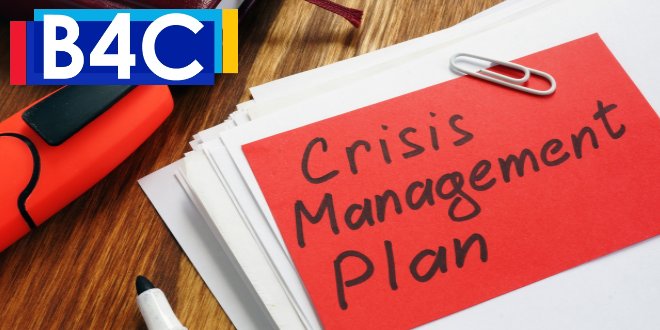Considering what we have been through with the Covid-19 pandemic, I thought that it might be time that we took a look at crisis management strategies. This is a basic look at what is a complex issue, and any advice given here is only in its simplest form. You should seek professional representation to help your business should the worst happen.
Below is some very basic information on what crisis management involves, and how best to tackle it for your business.
What is crisis management?
Crisis management is all about looking ahead and spotting potential or actual threats to your business and mitigating their effects in the fastest way possible.
A crisis is often caused by negative news surrounding a brand or the economy that has the potential to do any of the following:
- Damage your business brand’s reputation.
- Hurt business operations.
- Negatively impact your business finances.
- Harm any stakeholders &/or your employees.
- AND... A crisis can be internal or external to your business.
What are the three phases of crisis management?
PHASE ONE: Pre-crisis
Before anything has occurred, you should lay the groundwork for successfully mitigating risk, through preparation and prevention techniques.
Do this by looking at 2 types of crisis:
- Predictable Crisis
- Unpredictable Crisis
From: simply monitoring social media for your business name (or your competitors name) you will get the jump on any activity BEFORE it happens.
To: planning what to do, how you will react and who you will need to contact and what to do, should the worst happen. From lists of media contacts to websites, social media, and more (insurance, family, friends) you will need to think of every worst case scenario and try to plan for it.
PHASE TWO: Crisis response
This phase kicks in as soon you identify a crisis, and involves quick decision-making followed by immediate action.
Using your plan, you react. You decide what to do, who to contact, how to respond, and a message that is at all times uniform across all mediums.
You don't want mixed messages out there about you, or your brand.
Your one clear message should be enough to give confidence and allow room for further response should anything change.
PHASE THREE: Post-crisis
The aftermath phase is all about reflecting on what happened.
By looking back, you can plan to move forward.
What responses worked, what didn't.
Move your focus back to your Phase One plan again, making it better than before having survived a crisis.
As I said, this is a very basic look at Crisis Management, and it is something that every single business should look at and try to plan for.
There are specialists out there than can help you drill down on Crisis Management, and you should consider having them in your team, or at the very least, have a plan ready to go that you have created yourself.
Stay safe, and until next time - avoid any crisis the best you can!



